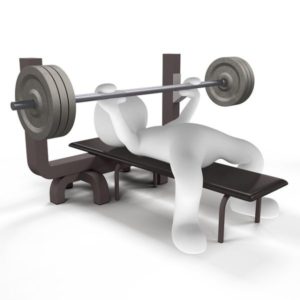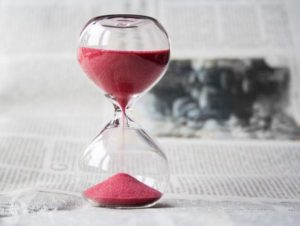
ピアノのどのスキルを習得するにも、最も重要なことは、そのために使った練習時間です。
才能や関心があれば、モチベーションが高く、質のいいものになりますが、長い目で見ると重要なのは実践です。
そのため今回はどれだけ日々の練習が重要になってくるかを説明します。
よく聞くのが「1日に何時間練習したらいいの?」ということです。
ピティナ(PTNA)さんの調査によると、実に約87%の方は1時間未満という結果が出ています。
私もこの結果には共感できます。
確かに1度に数時間かけて練習した方が、より理解が早まりますし、技術もしっかりと身に付いていくでしょう。
しかし、よほど時間がある方出ない限り、毎日数時間の時間を空けることはなかなかできません。
「毎週何曜日は〇〇時間練習する」と決めていても何か予定が入ってしまうとその週は練習できなくなってしまいます。
他の予定を犠牲にしたり睡眠時間を削ったりしてまでピアノの練習をする必要はありません。
それよりも1日の少しの空いた時間、例えばテレビのcmが流れているとき、お風呂を沸かしているときなどを使って毎日少ない時間で練習していくぐらいでいいと思います。
イレギュラーな予定が入ったときは練習する必要はありません。毎日少しの合間にピアノに触れていれば1日練習しなくとも大して差は出ないからです。
1日の練習時間が30分間だけど週に6日間練習するAさんと、2時間練習するけど週に1度の練習だけのBさんで、どのくらい練習時間の差が出てくるのか単純な算数ですが計算していきます。
1週間後の練習時間はAさんが3時間、Bさんが2時間となりAさんはBさんの1.5倍練習したことになります。
これを年間で計算するとAさんは約156時間、対してBさんは約104時間になり、その差は52時間になります。
これはBさんで言うところの26日分(26週間分)練習時間が一年間で少ないということになります。
ピアノの練習は1日の練習時間ではなく、ピアノに触れる日数、頻度が大事なのです。
練習のモチベーションを維持するために

毎日コツコツ練習することが、意識しなくても苦になることなくできる人もいらっしゃいますが、高いモチベーションを維持できずに辞めてしまう方も多いかと思います。
そこで日々のモチベーション維持のためのヒントをご紹介します。
時間を気にしない

まずは、時間を気にしすぎないことです。
例えば1日30分練習すると決めたときには、30分を超えなければいけない、という使命感の方が強くなってしまいがちです。
そうなると学校の授業のように終わる時間ばかり気にして、練習そのものが苦になってしまいます。
目的は上達することであって、練習時間を重ねることではありません。
自分のキリのいいところまで出来たら終わるようにしましょう。
ときには体調や気分があまり優れないときもあります。
そんなときは、今自分が弾ける曲をサラッと弾いて止めにしましょう。
大事なのはピアノに触れることです。
型にハマり過ぎない

ピアノの教本に沿って練習をかさねていくことは上達のためには大事なことです。
しかし、その通りに進んでいっても、途中から単調な作業になってしまいモチベーションが落ちていってしまいます。
ときには、自分の好きな曲を練習したり、好きなピアニストの曲を聴く時間を作り、一旦道をそれることも重要です。
モチベーションが高くない状態で毎日10の練習をするよりも、今日の練習はモチベーションを上げることに専念して明日から15の練習をしていったほうが長い目で見て効率が良くなります。
型にハマり過ぎずに、自分にあったやり方を見つけてみましょう。
人に聞いてもらう

音楽は本来聞く人がいて成立します。
ときどき、自分が持っている技術や自分が弾ける曲を人に聞いてもらうのもいいでしょう。
その人がどういう反応をするにしろ、相手に1曲聞かせたという達成感がモチベーションを上げることにつながります。
また、それにより自信がついてきます。
「ここまでできたら次もできる」という気持ちに自然に奮い立っていくのです。
身近に聞いてくれる人がいないときは、思い切ってYouTube等に投稿してみるのも一つの手です。
ただし、ネットで活躍されているプロの方もいらっしゃいます。聞き手にはあくまでも謙虚に振る舞いましょう。
まとめ
- 1日の練習時間は30分でも問題ない
- ピアノの練習は1日の練習時間を長くするのではなく、練習をする頻度を上げることが重要
最後に

毎日の行動が習慣化し、苦にならない様になるには平均で約2ヶ月が必要とされています。
2ヶ月間は意識的にピアノに触れる機会を増やしましょう。
習慣化すると、それが普通になり。気づいたらピアノを弾く技術が上達しているはずです。
「ウサギとカメ」の話ではカメが勝つことで有名ですね。
ウサギはカメを見ていた結果カメに追い抜かれてしまいます。逆にカメはゴールを見ていて勝つことができました。
周りに自分よりスキルが有る人がいても、必ずゴールを見続けるようにしましょう。
そうすれば、自信とやる気にあふれてより毎日のピアノの練習の質が高くります。
コメントを残す